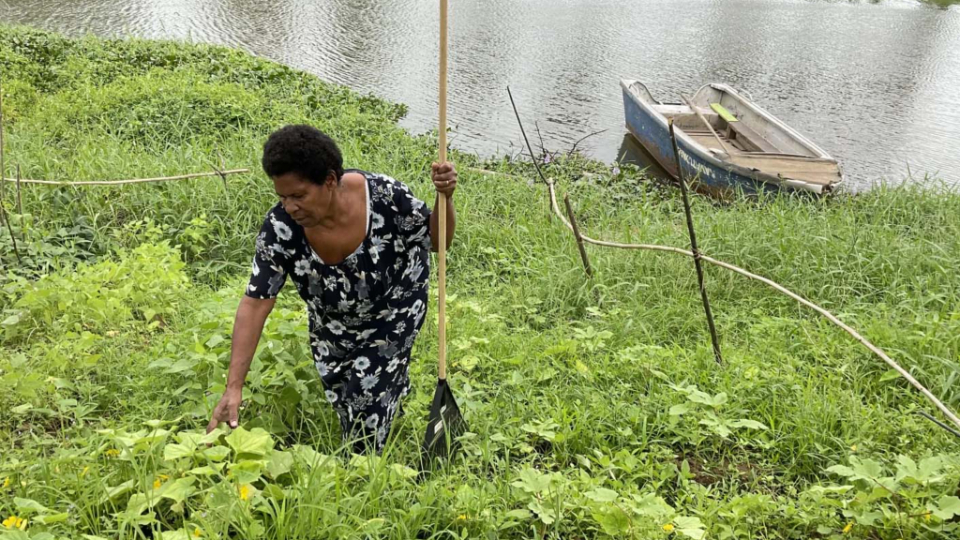
Fiji-ADRA-1
A woman works in her backyard garden in Fiji using skills she learned in agricultural classes in 2022.2022 by Intellectual Reserve, Inc. All rights reserved.
This story appears here courtesy of TheChurchNews.com. It is not for use by other media.
By Rachel Sterzer Gibson, Church News
A cassava field is one of several places where a collaboration between The Church of Jesus Christ of Latter-day Saints and the Adventist Development and Relief Agency (ADRA) is helping Fijian villagers become more self-reliant, according to the Church’s Pacific Newsroom.
Cassava is an important staple in many Fijian village diets. Cassava flour, made from the tuberous root of a cassava plant, is gluten-free, less prone to insects and can be cultivated on farms so that villagers do not have to purchase wheat flour.
| Temple Square is always beautiful in the springtime. Gardeners work to prepare the ground for General Conference. © 2012 Intellectual Reserve, Inc. All rights reserved. | 1 / 2 |
The Church and ADRA provided seeds and farm implements to grown and harvest different vegetables and plants, including several varieties of cassava. They then facilitated classes on understanding organic gardening methods; how to care for crops; and how to harvest, dry and grind cassava into flour.
In a video posted on The Church of Jesus Christ – Pacific Area YouTube account, Aseri Bui shows how she and other Fijian villagers peeled the cassava tuber, dried it and ground it into flour to use in a banana cake. The skills they have learned have a big impact, Bui said.
“Most of the families here are not employed, but they are farmers. … These types of things help us with eating and planting vegetables. It really has helped us a lot,” she said.
“Demonstration fields,” such as the cassava field, were used to give hands-on training to people in producing a variety of vegetables, thus expanding their diet and nutrition.
Villagers were then encouraged to take what they learned and cultivate their own garden at home. With donated packets of seeds, tools and their new agronomy instruction, families are raising a variety of vegetables, such as tomatoes, eggplants, cucumbers, capsicums and green beans, in their own yards.
The hope is that families will become proficient enough to start small businesses selling surplus produce and cassava flour. It is estimated that the project will impact over 250 village families.
Copyright 2022 Deseret News Publishing Company.